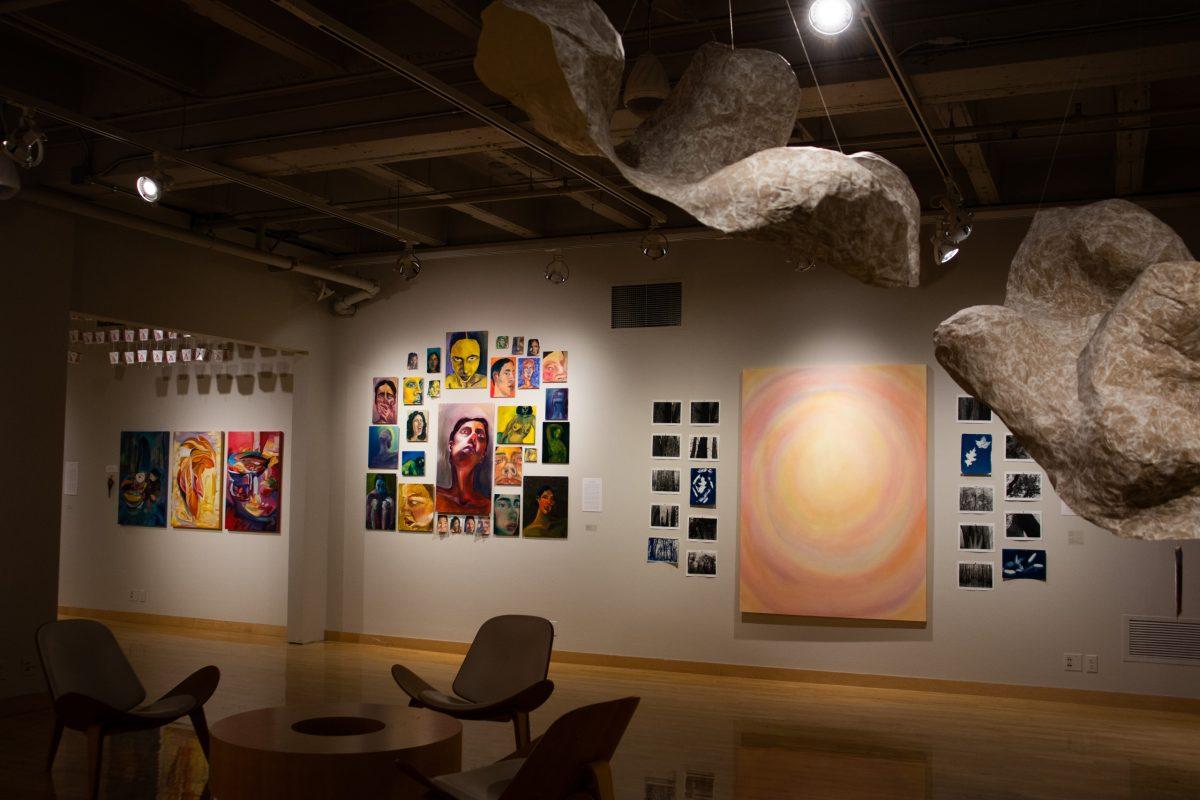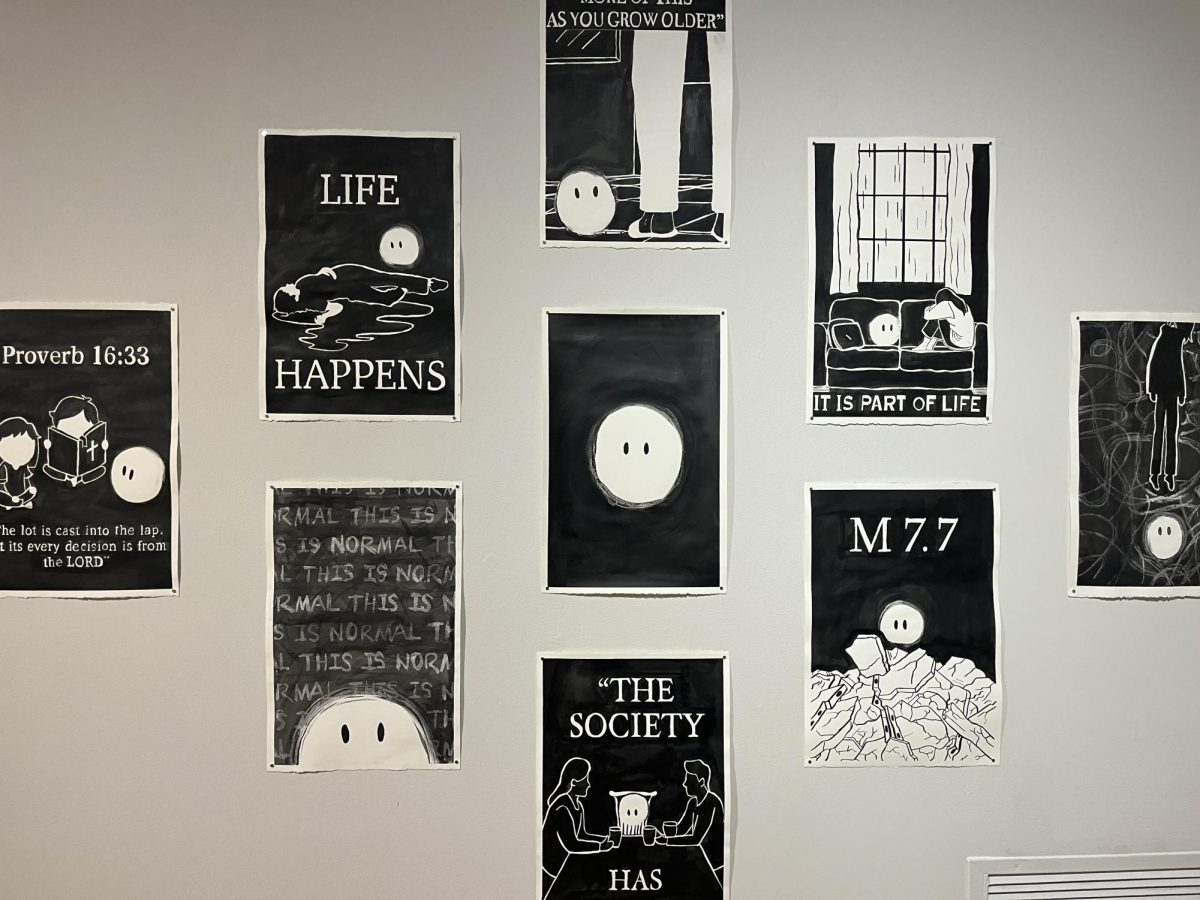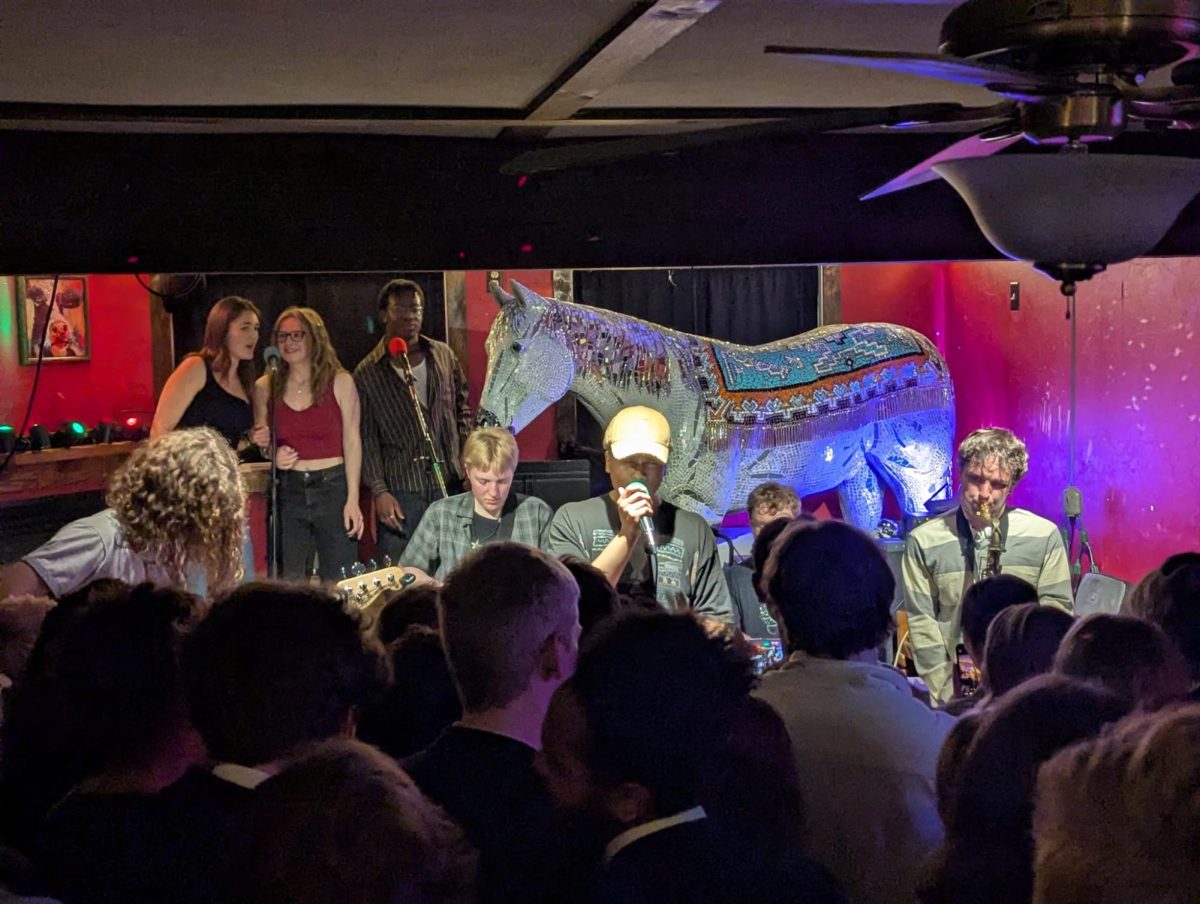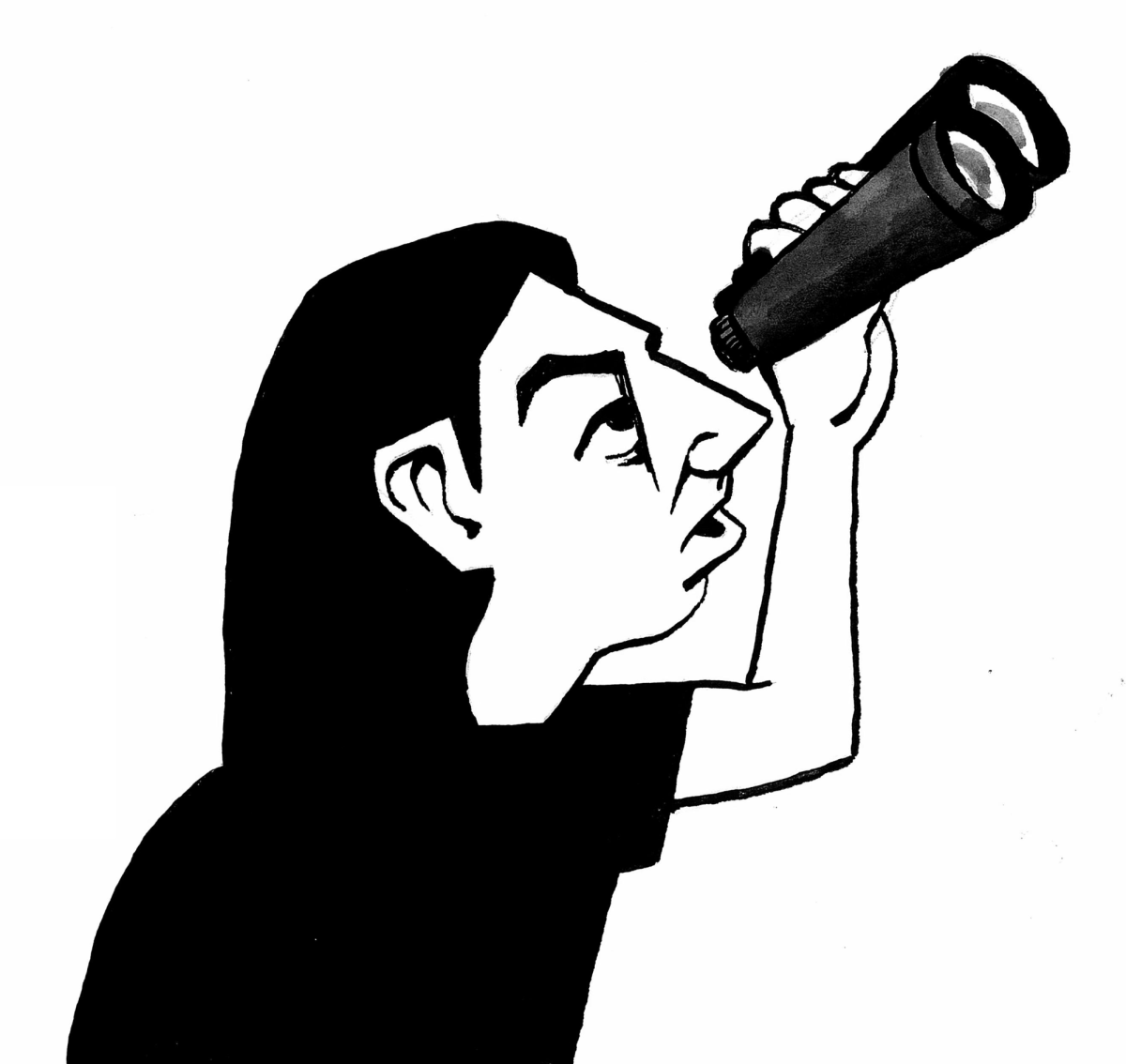The Senior Art Show in the Flaten Art Museum is the culmination of years of training and months of work for senior studio art majors. This year the gallery also feels like the culmination of the artists’ process of careful introspection and interrogation. Throughout the exhibit, student artists use their final projects to probe intimate issues of identity, place, childhood, and family with depth and sincerity. Many works explore the intersections of personal history, personal space, and self-portraiture. The gallery is certainly an impressive display of skill and technique, but the way the artists have incorporated an unfiltered vulnerability into their pieces is truly something special.
Theo Mattson’s ’22 intaglio and watercolor images examine his ambivalent relationship with Northfield, the town where he “first walked, ran, fought, and fell in love” but also felt “trapped, brainwashed, and lied to by those [he] trusted the most.” Mattson’s work investigates the stifling feeling of living in a “society that was not designed for [him].” In ‘Gaze,’ Mattson’s younger self is monitored by the watchful eyes of a grove of birch trees. He writes, “I’ve expressed everything I feel about this town and what it means to live here when you happen to look like me.”
In an email to the Messenger, Mattson describes the process of developing his senior pieces as “both liberating and terrifying every step of the way.” He continued, “The art courses here are one thing, but full creative control is a dream come true. I was able to push myself to new heights during these past four months. When it comes to my work there are no rules, no limits, and nothing is left unsaid.”
Jorie Van Nest’s ’22 collection of photography also explores how the people and places that make up one’s childhood shape one’s sense of self. “The people who tell us stories throughout our lives often lend us the language and frameworks to narrate our own experiences,” Van Nest wrote in her artist’s statement. She paired a constellation of black and white photographs that “highlight specific moments of love and presentness” with audio recordings that hold themes of “maternal love, family history, gaining independence, and finding home in myself and the world around me.”
Anchoring the gallery’s theme of self-examination is Tienna Brusett’s collection of 29 vibrant and evocative self-portraits in oil. “By painting a self-portrait daily — a material, tactical, reflective practice — I have asked myself to acknowledge, make familiar, and welcome with gentleness (and sometimes humor) my body and selfhood’s coexistence,” Brusett writes in her artist’s statement. “This series aims to explore the mundane, awkward, ethereal, lonely, creepy, endearing, sometimes painfully tender experience of living with and within a body.”
The artists don’t shy away from the intimacy of exploring bodily experiences. Julia Qiao Gerloff’s ’22 paintings reflect her “purposeful journey to reconsider [her] identity through the food that sustained [her],” and Kay Lowe’s ’22 anatomical self-portraits center her experiences with invisible disabilities. Aimi Dickle’s ’22 saturated self-portrait series focuses on the “joy, the insidiousness, and the constant learning” she experiences as a mixed race Asian-American woman.
Other artists engage with the portrayal of intimate spaces. Miloe Douglass’s ’22 series of dorm room still lifes capture tangles of cords and scraps of trash, prescription bottles and packs of cigarettes in the deep textures of intaglio printmaking. Their painstaking treatment of this everyday, personal litter turns an “ugly, relatively shameful reality into a visual to be consumed by those who do not live in it,” as Douglass writes in their artist’s statement.
Sophie Adams’ ’22 installation reassembles the collection of personal mementos that made up her transient childhood bedroom. “Growing up in different counties, the only things that felt permanent in my life were my close family and the objects that could take the place of the home that I knew I had to leave behind in 3-4 years,” Adams wrote. The artwork, photographs, seashells, and stuffed animals are brimming with the vibrance and innocence of youth, and you can feel the tangible presence of cherished personal memories.
Other parts of the gallery encourage viewers to embrace a similar moment of self reflection. Meg Kartheiser’s ’22 dreamy paper mâché sculptures invite the same sort of pondering as does a cloud-filled sky. “The organic, unidentifiable forms represent my unknowing: unknowing of the future, of purpose, and of desire. How does it feel to embrace the uncertain, unresolved, and unexplored?” Katheiser writes in her artist’s statement. “I invite viewers to dive into the unfamiliar and embrace acceptance – and even celebration – of the unknown.”
Meanwhile, Kate Helin-Burnette’s ’22 immersive installation piece, “Passage,” in the basement of CAD feels like taking a walk through the folds of your own cortex. The glowing drapes of fabric envelope hanging amorphous stoneware sculptures. In her artist’s statement, Helin-Burnette writes that her work is “guided by a rejection of the ‘fragility’ in association with emotionality.”
Throughout the exhibit, I was in awe of the talent, resilience, and ingenuity of our peers. They are engaging in the vital work of interrogating the internal and external forces that shape our identities and turning that work into art that is resonant and real. The gallery is open through May 28 in the Flaten Museum — don’t miss it!




